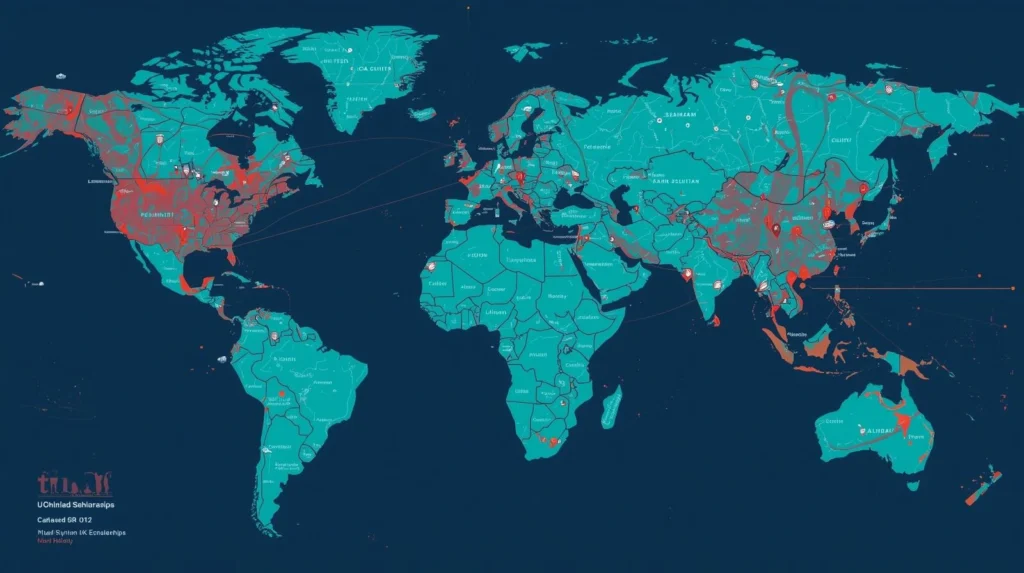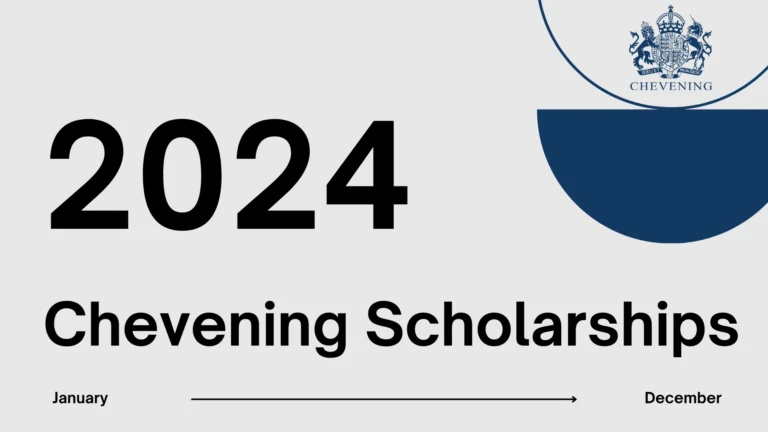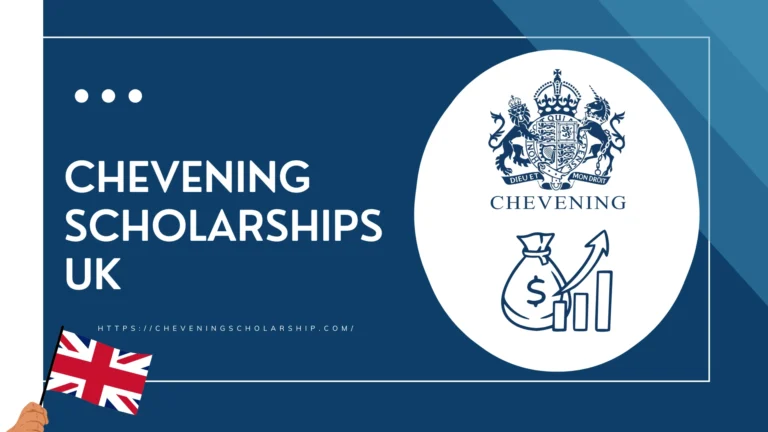UK Government Scholarships: Your Complete Guide to Studying in Britain for Free
The £50,000 Question: Can You Actually Study in the UK for Free?
Here’s something that’ll make you sit up straight: The UK government spends over £100 million annually sending talented international students to British universities. For free. Yes, you read that right—completely free.
I know what you’re thinking. “There’s got to be a catch, right?” Well, sort of. The catch is you need to be brilliant, passionate, and strategic about your application. But if that describes you (and I’m betting it does, since you’re here reading this), then UK government scholarships might just be your golden ticket to studying at Oxford, Cambridge, LSE, or any other prestigious British institution without selling a kidney.
Let me paint you a picture. Imagine walking through the hallowed halls of a centuries-old university, attending lectures from world-renowned professors, and networking with future world leaders—all while someone else foots the £30,000+ annual bill. That’s not a fantasy. That’s what happens when you land one of these scholarships.
But here’s the thing nobody tells you: Most people don’t even apply because they assume they won’t get it. They see “fully funded scholarship” and think it’s reserved for Nobel Prize-winning prodigies. Spoiler alert: It’s not. It’s for people like you who are smart enough to read this guide and strategic enough to actually follow through.
Why UK Government Scholarships Are Worth Fighting For
Before we dive into the nitty-gritty, let’s talk about why UK government scholarships for international students are genuinely game-changing—not just nice-to-have perks.
The Financial Freedom Factor
British education isn’t cheap. We’re talking £15,000-£35,000 per year in tuition alone. Add accommodation (£8,000-£12,000), living expenses (£10,000-£15,000), and those “necessary” pub trips (£???), and you’re looking at £40,000-£60,000 annually. For a one-year master’s program, that’s a deposit on a house in many countries.
UK government-funded scholarships typically cover:
- Full tuition fees (whatever your university charges, they’ve got you)
- Monthly living stipend (usually £1,200-£1,500—enough to live comfortably)
- Return airfare (economy, but who’s complaining?)
- Visa costs (because bureaucracy shouldn’t cost you extra)
- Additional allowances (for books, thesis research, warm coats)
Do the math. That’s £40,000+ in value. Tax-free. Without needing to work part-time jobs that distract from your studies.
The Prestige Premium
Let’s be honest—prestige matters. Having “Chevening Scholar” or “Commonwealth Scholar” on your CV doesn’t just look good; it opens doors that stay locked for others. It’s a signal to employers, governments, and organizations that you’re not just educated—you’re elite.
I’ve seen how hiring managers’ eyes light up when they spot these scholarships on applications. It’s the professional equivalent of name-dropping that you went to Hogwarts.
The Network Nobody Talks About
This deserves its own section (and it’ll get one), but UK government scholarship alumni networks are absurdly powerful. We’re talking 50,000+ global leaders, decision-makers, and changemakers who actually respond to LinkedIn messages.
The Big Three: UK Government Scholarships You Need to Know
Let’s break down the major players in UK government scholarships 2025. Think of this as your starting lineup—the scholarships with the biggest impact, widest reach, and best reputations.
1. Chevening Scholarship: The Crown Jewel
If UK government scholarships were a royal family, Chevening Scholarship would be wearing the crown. This is the big one, folks—the scholarship that makes other scholarships jealous.
The Basics:
- Who can apply: International students from 160+ countries with 2+ years work experience
- What it covers: Everything. Tuition, stipend, flights, the works
- Study level: One-year master’s degree at any UK university
- Annual awards: Around 1,500 scholarships globally
Why it’s brilliant:
Chevening isn’t just about money—it’s about joining an elite club. The scholarship was established in 1983 by the UK Foreign, Commonwealth & Development Office, and it’s specifically designed to identify future leaders. If you’re ambitious, politically aware, and have dreams of changing your country, this is your scholarship.
The application process is rigorous (we’ll get to that), but here’s what makes Chevening special: They’re looking for leaders, not just academics. You could have a 4.0 GPA and still not get it if you can’t demonstrate leadership potential and a clear vision for how you’ll use your UK education.
Real talk: Chevening has a roughly 2-3% acceptance rate. But don’t let that scare you. Most applicants don’t follow the guidelines properly, submit generic essays, or apply without the required work experience. If you do everything right, your odds are much better than the statistics suggest.
2. Commonwealth Scholarships UK: The Inclusive Powerhouse
Commonwealth Scholarships UK are the definition of “education for impact.” These scholarships specifically target students from low and middle-income Commonwealth countries who couldn’t otherwise afford UK education.
The Basics:
- Who can apply: Citizens of Commonwealth countries (that’s 56 nations)
- What it covers: Full tuition, living costs, travel, and thesis grants
- Study level: Master’s and PhD programs
- Focus: Development-related subjects (health, education, environment, etc.)
Why it matters:
Commonwealth Scholarships have a soul. They’re explicitly designed to support students who will return home and make tangible differences in their communities. If you’re from Pakistan, Nigeria, Kenya, Bangladesh, or any Commonwealth nation, and your research or career goals align with development priorities, this could be your perfect match.
The Commonwealth Scholarship Commission isn’t looking for students who want to escape their countries—they’re looking for students who want to transform them. Your application should scream “I’m going back, and I’m going to change things.”
Insider tip: Commonwealth Scholarships have specific themes each year. Check the current priorities and align your application accordingly. Last year’s themes included climate change, health systems strengthening, and digital innovation.
3. GREAT Scholarships UK: The Rising Star
GREAT Scholarships UK are the new kid on the block, but they’re making serious waves. These scholarships are a partnership between the UK government and British universities, designed to support students from specific countries.
The Basics:
- Who can apply: Students from select countries (varies yearly, but includes China, India, Pakistan, Nigeria, Egypt, and more)
- What it covers: Minimum £10,000 toward tuition (universities often add extra funding)
- Study level: Postgraduate programs at participating universities
- Annual awards: Over 200 scholarships across multiple institutions
Why it’s worth your attention:
GREAT Scholarships are easier to win than Chevening or Commonwealth (higher acceptance rates), and you can combine them with other funding sources. Many students use GREAT as a foundation and supplement with university scholarships or personal savings to cover the full cost.
The application process is also simpler—usually just an essay and supporting documents, without the intensive interviews required by other programs.
Strategy note: If you’re applying to multiple UK universities, check which ones participate in GREAT. You can apply for GREAT alongside your university application, killing two birds with one well-crafted essay.
Beyond the Big Three: Other UK Government Scholarship Options
The scholarship landscape is bigger than you think. Here are other UK government scholarships worth exploring:
Marshall Scholarships UK
Who it’s for: US citizens only (sorry, rest of the world)
This one’s for Americans who want to study in the UK. It covers 2-3 years of postgraduate study and is incredibly prestigious. Only 40-50 scholars are selected annually, making it more exclusive than getting into Harvard.
If you’re American and brilliant, apply. The Marshall Commission looks for academic excellence, leadership potential, and ambassadorial potential between the US and UK.
UK Government Scholarships for Pakistani Students
Pakistan gets special mention because the UK government offers several targeted schemes for Pakistani nationals:
- Chevening Scholarships: Pakistan receives one of the largest allocations globally (50+ awards)
- Commonwealth Scholarships: Strong representation for development-focused studies
- GREAT Scholarships: Multiple universities offer GREAT scholarships specifically for Pakistani students
Why Pakistan gets priority: Historical ties, Commonwealth membership, and strategic importance in UK foreign policy. If you’re Pakistani, your chances are genuinely better than students from many other countries.
UK Scholarships for International Undergraduates
Here’s some tough love: UK scholarships for international undergraduates funded by the government are rare. Most government schemes focus on postgraduate studies. However, some universities offer undergraduate scholarships with government partnerships, so don’t give up—just know you’ll need to dig deeper.
Understanding UK Government Scholarships Eligibility
Let’s talk about UK government scholarships eligibility because this is where most people trip up before they even start.
Universal Requirements (Most Scholarships)
1. Nationality: You must be a citizen of an eligible country (varies by scholarship)
2. Academic qualifications:
- Usually an undergraduate degree equivalent to UK upper second-class honors (2:1)
- Some scholarships accept lower grades if you have exceptional work experience
- PhD scholarships require a master’s degree
3. English language proficiency:
- IELTS: Usually 6.5-7.0 overall (varies by university)
- TOEFL: Equivalent scores
- Some universities accept other tests or waive requirements for certain countries
4. Not currently living/studying in the UK:
- Most scholarships require you to be in your home country when applying
- You can’t be in the UK on another scholarship
5. Age limits:
- Some scholarships have age restrictions (usually none or very generous)
- Chevening doesn’t have an age limit, for example
Specific Requirements That Catch People Off Guard
Work experience (Chevening): You need 2,800+ hours of work experience (roughly 2 years). Internships count, volunteer work counts, part-time work counts—but it must be documented.
Return home clause (Commonwealth): You must commit to returning to your home country after your studies. This isn’t optional or negotiable.
Course restrictions (GREAT): GREAT Scholarships are only available for specific courses at specific universities. Check the list before you fall in love with a program.
Leadership demonstration: Most scholarships want evidence of leadership. This doesn’t mean you need to be a CEO—community organizing, volunteer leadership, academic leadership all count.
The Application Process: UK Government Scholarships Application Process Demystified
Alright, let’s talk about the UK government scholarships application process. This is where dreams are made or broken, so pay attention.
The Timeline (Because Deadlines Are Everything)
UK government scholarships deadlines vary, but here’s a general timeline:
| Scholarship | Application Opens | Application Deadline | Interview Period | Results Announced |
|---|---|---|---|---|
| Chevening | August | Early November | February-April | June-July |
| Commonwealth | October | Varies by scheme (Dec-April) | March-June | May-July |
| GREAT | Varies by university | Jan-May | N/A (essay-based) | Rolling basis |
| Marshall | April | September-October | November-February | March-April |
Pro tip: Start preparing at least 3-4 months before deadlines. These applications require references, essays, and often transcripts—rushing guarantees mediocrity.
The Application Components
1. Online Application Form
Every UK government scholarship application form asks for:
- Personal details (the easy part)
- Educational history (with scanned transcripts)
- Work experience (with dates, responsibilities, and achievements)
- Course choices (maximum 3 for Chevening)
- Referees (2-3 professional references)
Common mistakes:
- Lying or exaggerating (they check everything)
- Vague work descriptions (be specific about your impact)
- Choosing referees who barely know you (quality over seniority)
2. Essays/Personal Statements
This is where you win or lose. Most scholarships require 3-4 essays (500-1000 words each) on topics like:
- Why you chose your courses
- Your leadership experience
- Your career plan
- How you’ll contribute to your home country
- Your networking strategy
What they’re really asking:
When they ask “Why this course?” they’re asking “Have you thought this through, or are you just applying randomly?”
When they ask about leadership, they’re asking “Can you inspire others and drive change?”
When they ask about your career plan, they’re asking “Will this scholarship be a good investment?”
How to nail your essays:
✓ Be specific: Don’t say “I want to help my country.” Say “I will establish a rural electrification program that serves 50,000 households.”
✓ Use stories: Don’t list achievements. Tell the story of how you led a team through a crisis.
✓ Show genuine passion: Scholarship panels can smell fake enthusiasm from miles away.
✓ Connect the dots: Your past experience + UK education + future plans should form a coherent narrative.
✓ Address the “why UK” question: Specific universities, specific professors, specific resources you’ll access.
3. References
Choose referees who:
- Know you well professionally or academically
- Can speak to your leadership and potential
- Will actually write a strong, detailed reference (not a generic template)
- Will submit on time (follow up politely but persistently)
4. Interviews
If you make it to the UK government scholarships interviews stage, congratulations—you’re in the top 10% of applicants.
What to expect:
Interviews are typically 20-45 minutes with a panel of 2-4 people. They’ll ask about:
- Your application essays (they’re testing consistency)
- Current affairs (especially related to your country and field)
- Hypothetical scenarios testing your judgment
- Your long-term vision
Interview tips:
✓ Know your application inside out: They will reference specific sentences from your essays.
✓ Stay current: Read news daily in the months leading up to interviews.
✓ Practice articulating complex ideas simply: You have limited time to make your points.
✓ Show enthusiasm without arrogance: Confidence is good; cockiness is not.
✓ Prepare questions: Interviews usually end with “Do you have questions for us?” Have thoughtful ones ready.
✓ Dress professionally: First impressions matter, even on video calls.
UK Postgraduate Scholarships: Master’s vs. PhD Funding
Let’s differentiate between UK postgraduate scholarships for master’s and doctoral studies because they’re quite different animals.
UK Scholarships for Masters
Most UK government scholarships focus on master’s degrees, specifically one-year taught programs. Why? Because they offer maximum impact in minimum time.
Best scholarships for master’s:
- Chevening (specifically designed for master’s)
- GREAT Scholarships (postgraduate focus)
- Commonwealth Master’s Scholarships
What UK scholarships for masters typically fund:
- 12-month taught master’s programs
- Some 2-year programs (less common)
- Coursework-based degrees (MBA, MA, MSc, LLM)
Application strategy: Demonstrate how the specific master’s program fills a gap in your skillset that prevents you from achieving your career goals.
UK Scholarships for Doctoral Studies
UK scholarships for doctoral studies are longer-term investments (3-4 years) and thus more selective.
Main options:
- Commonwealth PhD Scholarships
- Some university-specific PhD scholarships with government partnerships
- Research council funding (competitive, often requires UK residency)
What makes PhD scholarship applications different:
- You need a detailed research proposal
- Finding a supervisor before applying is often crucial
- Publications or research experience strengthen your application significantly
- The commitment to return home (for development-focused scholarships) is harder with a 4-year absence
What UK Government Scholarships Coverage Actually Includes
Let’s get specific about UK government scholarships coverage because “fully funded” means different things in different contexts.
Standard Coverage Breakdown
| Expense Category | Chevening | Commonwealth | GREAT |
|---|---|---|---|
| Tuition Fees | ✓ Full | ✓ Full | £10,000 minimum |
| Monthly Stipend | ✓ £1,236-£1,516 | ✓ £1,347 | ✗ Usually none |
| Return Flights | ✓ Economy | ✓ Economy | ✗ No |
| Visa & Health Surcharge | ✓ Covered | ✓ Covered | ✗ No |
| Arrival Allowance | ✓ £1,236 | ✓ £1,084 | ✗ No |
| Thesis/Dissertation Grant | ✓ Up to £750 | ✓ Up to £1,000 | ✗ No |
| Warm Clothing Allowance | ✓ £250 (if applicable) | ✓ £317 (if applicable) | ✗ No |
What’s NOT Usually Covered
Be realistic about these additional costs:
- Dependent support: Most scholarships don’t cover bringing family (some PhD scholarships do)
- Pre-departure expenses: Application fees, medical tests, notarization
- Extra travel: Only one return trip is covered; additional travel is on you
- Personal emergencies: Medical insurance is included, but you’ll need savings for unexpected costs
- Luxury lifestyle: The stipend covers comfortable living, not champagne wishes and caviar dreams
UK Government Scholarships Benefits Beyond Money
Let’s talk about the non-financial UK government scholarships benefits that actually matter more in the long run.
Career Acceleration
Government scholarship recipients see measurable career progression:
- Faster promotions: Employers value the prestige and skills
- Higher salaries: UK education + scholarship = 20-40% salary increases post-graduation (on average)
- Leadership positions: Alumni networks actively support members’ career advancement
Skills Development
Beyond your academic degree, you’ll develop:
- Critical thinking honed by the British education system
- Cross-cultural competence from living in diverse environments
- Professional communication at international standards
- Research capabilities that transfer across sectors
The Alumni Advantage
Every major UK government scholarship comes with lifetime alumni status, including:
- Exclusive events (networking, professional development, cultural)
- Mentorship programs (both receiving and giving)
- Job opportunities shared within networks
- Continuing education access to courses and webinars
- Global community of people who understand your experience
UK Government Scholarships Application Tips That Actually Work
Ready for some battle-tested UK government scholarships application tips? Here’s what separates successful applicants from everyone else.
Before You Even Start Writing
1. Research obsessively
Know your scholarship inside out. Read:
- Official scholarship websites (every page)
- Alumni blogs and testimonials
- Previous years’ statistics
- The funding organization’s priorities and values
2. Choose courses strategically
Don’t just pick prestigious universities—pick programs that:
- Align perfectly with your career goals
- Offer unique specializations you can’t get elsewhere
- Have faculty doing research in your areas of interest
- Have strong alumni networks in your field
3. Build your profile proactively
If you’re planning to apply next year:
- Seek leadership opportunities now
- Volunteer strategically (quality over quantity)
- Publish articles or research
- Develop your professional social media presence
- Network with current scholars and alumni
During Application Season
4. Start early, revise relentlessly
First drafts are always terrible. Great essays come from revision. Budget time for:
- Draft 1: Getting ideas down
- Drafts 2-3: Refining arguments and structure
- Drafts 4-5: Perfecting language and flow
- Draft 6: Having someone else review
- Final draft: Proofreading for typos
5. Get feedback from the right people
Show your essays to:
- Current scholars (they know what works)
- People in your field (they can assess technical content)
- Skilled writers (they can improve your prose)
- Brutally honest friends (they’ll catch BS)
6. Demonstrate genuine UK interest
Scholarship panels can tell when applicants just want “any scholarship.” Show authentic interest in UK specifically:
- Cite specific professors you want to work with
- Reference specific resources (labs, archives, libraries)
- Mention UK’s unique approach to your field
- Connect your goals to UK strengths
Common Application Mistakes to Avoid
✗ Generic applications: Using the same essays for multiple scholarships (they can tell)
✗ Treating it like a competition: Putting down other countries/programs to elevate UK
✗ Vague future plans: “I want to work in development” won’t cut it. Be specific.
✗ Ignoring word limits: If they say 500 words, don’t write 750. They’ll stop reading.
✗ Focusing only on yourself: Show how your success benefits your community/country
✗ Neglecting presentation: Typos, formatting errors, and poor grammar sink applications
✗ Last-minute applications: Rushed applications are obvious and rarely successful
Special Focus: Scholarships for Specific Groups
UK Government Scholarships for Women
While most scholarships are gender-neutral, several initiatives specifically support women:
- Chevening Women in STEM Fellowship: Special awards for women in science and technology
- Commonwealth Scholarships for women in STEM: Priority given to female applicants in underrepresented fields
- Various university scholarships: Many UK universities offer women-specific funding
Why women-focused scholarships matter: They address global gender gaps in higher education and leadership, particularly in STEM and policy fields.
UK Government Scholarships for Minorities and Disadvantaged Groups
Several schemes prioritize students from underrepresented or disadvantaged backgrounds:
- Commonwealth Scholarships: Explicitly target students who couldn’t otherwise afford UK education
- Scholarships for persons with disabilities: Additional support for disabled students
- Low-income focused schemes: Special consideration for students from low-income backgrounds
UK Government Scholarships for Developing Countries
Most UK government scholarships explicitly target UK government scholarships for developing countries, including:
Priority regions:
- Sub-Saharan Africa
- South Asia
- Southeast Asia
- Middle East and North Africa
- Latin America (selected countries)
Why developing countries get priority: These scholarships are part of UK international development and foreign policy objectives.
Sector-Specific Opportunities
UK Government Scholarships for STEM
UK government scholarships for STEM receive special attention because of global skills gaps in science, technology, engineering, and mathematics.
Why STEM students have advantages:
- Higher funding allocations
- Special fellowships within major scholarships
- Priority in Commonwealth Scholarships development themes
- Additional networking opportunities with UK tech sector
Top STEM fields for scholarships:
- Climate change and environmental science
- Public health and medical research
- Agricultural technology
- Digital innovation and AI
- Renewable energy
UK Government Scholarships for Public Policy
If you’re interested in governance, policy, or public administration, UK government scholarships for public policy are particularly abundant.
Why policy matters: These scholarships aim to improve governance in scholar countries by training future leaders in evidence-based policymaking.
Best programs for policy scholars:
- Public Policy, Public Administration, International Relations at LSE, Oxford, Cambridge
- Development Studies programs across UK
- Policy-focused master’s at King’s College London, UCL, etc.
The Money Question: UK Government Scholarships Success Rate
Let’s talk numbers. What’s the actual UK government scholarships success rate?
Brutal honesty time:
| Scholarship | Applications (approx.) | Awards | Success Rate |
|---|---|---|---|
| Chevening | 60,000+ | 1,500 | ~2.5% |
| Commonwealth | 30,000+ | 800 | ~2.7% |
| GREAT | 5,000+ | 200+ | ~4% |
| Marshall | 1,000+ | 40-50 | ~4% |
Before you panic: These numbers include thousands of unqualified applicants who apply anyway. The real success rate for well-qualified, well-prepared candidates is significantly higher—probably 10-15%.
What improves your odds:
- Meeting all requirements (eliminates 40% of applicants)
- Following instructions precisely (eliminates another 30%)
- Writing compelling, specific essays (puts you in top 20%)
- Having strong references and interviews (gets you to the finish line)
UK Government Scholarships FAQ: Your Burning Questions Answered
Can I apply for multiple UK government scholarships simultaneously?
Yes! Absolutely apply for multiple scholarships. However:
- Don’t submit identical applications (tailor each one)
- Check if any have exclusivity clauses (most don’t)
- Be strategic about which universities/programs you choose
- If you win multiple, you’ll need to choose one (good problem to have)
Do I need to have my university admission before applying?
It depends:
- Chevening: No, apply to scholarship first. If selected, then apply to universities.
- Commonwealth: Usually need conditional offer from university first.
- GREAT: Apply alongside university application.
Can I renew my scholarship?
UK government scholarships renewal is rare. Most are one-time awards for specific programs. However:
- PhD scholarships are multi-year by design
- Some programs offer alumni grants for additional studies
- You can apply for different scholarships for different degrees
What if English isn’t my first language?
No problem! You just need to meet English proficiency requirements:
- Take IELTS or TOEFL
- Some countries/education systems may be exempt
- Prepare well—language requirements are non-negotiable
Can I work while on the scholarship?
Generally no during term time, though:
- Part-time work (up to 20 hours/week) may be permitted with visa
- Summer work between terms is often allowed
- Internships related to your studies are usually fine
- Check specific scholarship terms—some prohibit all work
Your Action Plan: Getting Started Today
Alright, enough reading. Time for action. Here’s your UK government scholarships application success tips checklist:
Immediate Actions (This Week)
□ Determine your eligibility for major scholarships (Chevening, Commonwealth, GREAT)
□ Calculate your GPA equivalent to UK standards (2:1 or higher?)
□ Take stock of your work experience (Do you have 2+ years documented?)
□ Check your English test status (Valid IELTS/TOEFL, or need to take it?)
□ Research universities and programs (Make a shortlist of 5-10 potential programs)
□ Join scholarship applicant groups (Facebook, WhatsApp, Reddit)
Next Month
□ Register on scholarship websites and sign up for updates
□ Draft your CV/resume highlighting leadership and impact
□ Identify 3 potential referees and informally ask if they’d be willing
□ Start following UK universities on social media
□ Read 5-10 successful scholarship essays (many alumni share theirs)
3 Months Before Deadline
□ Write first essay drafts (don’t worry about perfection yet)
□ Officially request references (give referees plenty of time)
□ Take English proficiency test (if you haven’t already)
□ Attend scholarship webinars (most programs offer them)
□ Connect with current scholars on LinkedIn
1 Month Before Deadline
□ Finalize all essays (after multiple revisions)
□ Complete online application form (save draft, don’t wait until last minute)
□ Upload all required documents (transcripts, certificates, passport)
□ Follow up with referees (politely ensure they’ll submit on time)
□ Proofread everything three times minimum
Submission Day
□ Submit at least 48 hours before deadline (technical issues happen)
□ Save confirmation email and application number
□ Thank your referees (gratitude goes a long way)
□ Start interview preparation (for when you get shortlisted—positive thinking!)
The Truth About UK Government Scholarships Nobody Tells You
Before we wrap up, here’s some real talk about UK scholarships and grants that goes beyond the official brochures.
It’s Competitive, But Not Impossible
Yes, thousands apply. Yes, few win. But those who win aren’t superhuman—they’re strategic, persistent, and authentic. I’ve seen applicants with average grades but exceptional leadership win over applicants with perfect GPAs but no personality.
The Application Process Is Exhausting
Be prepared for months of hard work. You’ll write, rewrite, doubt yourself, revise again, and question everything. That’s normal. Push through.
Rejection Is Common (And Not Personal)
Most applicants don’t win on their first try. Many successful scholars applied 2-3 times before winning. Each rejection is a learning opportunity for a stronger application next time.
The Experience Changes You
If you win, your year in the UK will challenge, stretch, and transform you. You’ll return home different—hopefully better equipped to make the impact you dreamed about in your application essays.
The Network Is Real
This isn’t marketing fluff. The alumni networks for these scholarships genuinely support each other, open doors, and create opportunities. But you have to be an active participant, not a passive member.
Final Thoughts: Is It Worth It?
Look, I’m not going to sugarcoat it. Applying for UK government scholarships is hard work. You’ll spend dozens (maybe hundreds) of hours on applications. You might not win on your first attempt. The process will test your patience, resilience, and self-belief.
But here’s the thing: Even if you don’t win, the process of applying makes you better. You’ll clarify your goals, articulate your vision, and push yourself to be more strategic about your future. And if you do win? It’s genuinely life-changing.
Thousands of international students are studying in the UK right now on government scholarships. They’re not special unicorns blessed by magical scholarship fairies. They’re people who decided to try, worked hard on their applications, and followed through.
The question isn’t whether these scholarships are real or worth pursuing. They absolutely are.
The question is: Are you ready to do the work to make it happen?
Take the First Step
The best time to start was six months ago. The second-best time is right now.
Your immediate next steps:
- Visit the official websites (Chevening.org, Commonwealth Scholarships Commission)
- Download application guidelines for your target scholarships
- Join applicant forums and connect with current applicants
- Start drafting your CV highlighting leadership and impact
- Research programs and universities that align with your goals
The UK is waiting. World-class education is within reach. Your future self—the one who studied at Cambridge or LSE or Oxford—is counting on present-you to start the application.
Don’t let fear of rejection, imposter syndrome, or procrastination rob you of this opportunity. You’re reading this guide because you’re serious about your future. Now prove it by taking action.
The doors to British universities are open. The funding is available. The only question is: Will you walk through?


Bonus Section: Country-Specific Scholarship Strategies
Since UK government scholarships allocations vary by country, let’s talk about how to leverage your nationality strategically.
High-Allocation Countries (Your Advantage)
If you’re from Pakistan, India, Bangladesh, Nigeria, Kenya, Ghana, or Indonesia, congratulations—these countries receive significant scholarship allocations annually. Your advantage? More spots available. Your challenge? More local competition.
Strategy: Differentiate yourself from compatriots by:
- Choosing less popular but equally prestigious universities
- Focusing on niche specializations rather than generic programs
- Demonstrating unique perspectives your peers might not bring
- Building networks beyond your national community
Lower-Allocation Countries (Your Opportunity)
From a country that rarely gets scholarships? This might actually work in your favor. Scholarship committees value geographic diversity, so being one of few applicants from your nation can be an advantage.
Strategy: Emphasize:
- How your unique national context informs your perspective
- Why UK education is particularly relevant to your country’s challenges
- How you’ll be a cultural ambassador during your studies
- The potential impact in an underrepresented region
Understanding the UK Education System (Before You Apply)
Here’s something crucial: Understanding how UK university scholarships work requires understanding how UK education differs from other systems.
The One-Year Master’s Phenomenon
Unlike the US (2 years) or Australia (1.5-2 years), most UK master’s programs are intensely packed into 12 months:
September-June: Teaching, lectures, seminars, assignments June-September: Dissertation research and writing
This intensity means:
- ✓ Lower total cost (one year vs. two)
- ✓ Faster return to career
- ✓ Highly focused, efficient learning
- ✗ Limited time for internships or side projects
- ✗ Intense workload requires serious commitment
Application insight: In your essays, demonstrate you understand this intensity and are prepared for it. Committees worry about students who think a UK master’s will be a leisurely year abroad.
Teaching Style Differences
British universities emphasize:
- Independent learning: Less hand-holding than some systems
- Critical analysis: Question everything, including your professors
- Essay-based assessment: Written arguments over multiple-choice tests
- Seminar participation: You’re expected to contribute actively
Why this matters for applications: Show in your essays that you’re comfortable with independent, critical thinking and can thrive in discussion-based learning environments.
The Hidden Costs Nobody Mentions
Even with UK government scholarships funding covering major expenses, there are costs that catch scholars off-guard:
Pre-Departure Expenses
£500-£1,000 you’ll spend before you even board the plane:
- Visa application fee: £490
- TB test (required for some countries): £50-£100
- Document translations and notarization: £100-£300
- Application fees for universities: £50-£100 each
- Passport renewal (if needed): £75-£150
- Initial shopping (warm clothes, adapters): £200-£400
Pro tip: Start saving early for these costs. Some scholarships offer pre-departure grants, but not all.
The Social Life Tax
Living on a student stipend means budgeting carefully, but you’ll also want to:
- Travel within UK and Europe (budget £500-£1,500 for the year)
- Dine out occasionally with coursemates (socializing matters for networking)
- Attend cultural events (theater, concerts, exhibitions)
- Buy gifts/souvenirs for family back home
Reality check: The stipend is enough to live comfortably but not lavishly. Plan accordingly.
The Thesis Pressure
Your dissertation/thesis matters more than you think:
- It’s often 50-60% of your final grade
- It’s what you’ll discuss in job interviews
- It can lead to publications that boost your CV
- It might determine whether you’re considered for PhD funding
Application connection: When describing your research interests in applications, be specific and thoughtful. Generic research topics suggest you haven’t thought deeply about your thesis yet.
Leveraging UK Government Scholarships for Career Transformation
Let’s talk about using UK scholarships funding as a genuine career catalyst, not just a degree.
Before You Go: Setting Up Success
Month 1-2 (Before Departure):
- Connect with alumni in your field on LinkedIn
- Identify 5-10 UK-based professionals you’d like to meet
- Research UK companies/organizations in your sector
- Join professional associations (many offer student membership)
- Start a professional blog or portfolio
Why this matters: By the time you arrive in UK, you’ll have a network foundation rather than starting from zero.
During Your Studies: Strategic Career Building
What successful scholars do differently:
They treat every assignment strategically:
- Choose dissertation topics that build expertise in their target career area
- Focus group projects on real-world problems they’ll face professionally
- Use essays to develop arguments they’ll use in their careers
They network with purpose:
- Attend at least one industry event per month
- Arrange informational interviews with professionals
- Join university career services and attend every relevant workshop
- Present at student conferences (builds public speaking skills)
They document everything:
- Create a portfolio of best work
- Request recommendation letters before leaving UK
- Build case studies of projects completed
- Photograph events and experiences (for future presentations)
After Graduation: Maximizing ROI
The 6-month post-graduation strategy:
Months 1-2:
- Update all online profiles with new credentials
- Reconnect with home-country network
- Apply strategic lessons from UK to current role
- Share insights through articles or presentations
Months 3-4:
- Actively job search (if changing roles)
- Reach out to potential collaborators
- Apply for alumni grants or opportunities
- Consider speaking engagements about your experience
Months 5-6:
- Evaluate career trajectory changes
- Mentor prospective scholarship applicants
- Formalize long-term goals based on new insights
- Plan next steps (PhD, career change, entrepreneurship)
Special Considerations for Specific Careers
For Future Policymakers and Civil Servants
Best UK government scholarships for policy careers:
- Chevening (specifically designed for future leaders)
- Commonwealth (development policy focus)
- Specific Foreign Ministry scholarships (some countries offer these)
What to emphasize in applications:
- Your understanding of current policy challenges
- Specific policy gaps your UK education will address
- Concrete plans for applying learning to government roles
- Long-term vision for institutional change
Post-scholarship advantage: Government employers often fast-track Chevening/Commonwealth alumni.
For Entrepreneurs and Business Leaders
Why entrepreneurs should consider government scholarships:
- Built-in credibility for future investors
- Access to UK startup ecosystem and accelerators
- Network of potential co-founders and advisors
- Skills for scaling businesses internationally
Application angle:
- Frame entrepreneurship as leadership and impact
- Show how UK’s business education specifically addresses gaps
- Demonstrate social enterprise or development impact
- Explain why UK market insights matter for your region
For Academics and Researchers
Scholarship to PhD pipeline:
Many scholars use master’s scholarships as stepping stones to PhD funding:
The strategy:
- Excel in your master’s program (distinction or high merit)
- Build relationship with potential PhD supervisor
- Turn your master’s dissertation into PhD proposal foundation
- Apply for PhD scholarships during final months of master’s
- Secure funding before returning home (or plan gap year strategically)
Best UK government scholarships for research path:
- Commonwealth (offers both master’s and PhD schemes)
- University-specific research council funding
- Newton Fund scholarships (science and innovation focus)
The Scholarship Scandal Nobody Talks About
Let me share some uncomfortable truths about the scholarship world:
The Privilege Problem
Even “fully funded” scholarships favor those with existing advantages:
- You need strong English (often expensive to acquire)
- You need time to prepare applications (while working full-time)
- You need access to mentors who understand the process
- You need resources for pre-departure costs
What this means: If you’re genuinely disadvantaged, you face additional barriers. Acknowledge this but don’t let it stop you. Seek free resources, connect with alumni willing to mentor, and use determination as your advantage.
The Geographic Lottery
Your chances vary wildly based on:
- Which country you’re from (some get 100+ awards, others get 1-2)
- Which sectors are prioritized (STEM often has more funding)
- Political relationships between UK and your country
- Current development priorities
Reality: This isn’t always fair, but it’s the system. Work within it strategically.
The Return Home Clause Dilemma
Many scholarships require you to return home after graduation. But what if:
- Job opportunities are better abroad?
- Your country’s situation deteriorates (politically or economically)?
- You meet your future spouse in UK?
The fine print: Breaking the return clause can mean:
- Repaying the full scholarship value
- Being blacklisted from future opportunities
- Legal complications
Honest advice: Only accept scholarships with return clauses if you’re genuinely committed to returning. Don’t assume you’ll “figure it out later.”
The Ultimate UK Government Scholarships Checklist
Here’s your master checklist combining everything we’ve covered:
Your Application Strength Assessment
Rate yourself honestly (1-5) on each factor:
Academic Strength: □ Undergraduate GPA equivalent to UK 2:1 or higher □ Academic awards or honors received □ Research experience or publications □ Strong academic references available
Professional Experience: □ 2+ years relevant work experience □ Leadership roles demonstrated □ Measurable impact/achievements □ Clear career progression
Personal Qualities: □ Clear vision for using UK education □ Demonstrated commitment to home country □ Strong communication skills □ Cultural awareness and adaptability
Strategic Preparation: □ Thoroughly researched scholarship requirements □ Identified perfect-fit UK programs □ Developed compelling narrative □ Prepared for intensive application process
If you scored 15+ total: You’re competitive—apply confidently
If you scored 10-14: You’re borderline—strengthen weak areas before applying
If you scored below 10: Use this year to build your profile for next year’s application
Resources That’ll Actually Help
Official Websites (Your First Stop)
Chevening: www.chevening.org
- Most comprehensive scholarship site
- Country-specific information
- Alumni testimonials and advice
- Webinar recordings
Commonwealth Scholarships: cscuk.fcdo.gov.uk
- Detailed scheme information
- Development-focused resources
- Country eligibility checker
GREAT Scholarships: study-uk.britishcouncil.org/scholarships
- University-specific listings
- Application guidance
- Country-specific opportunities
Unofficial But Invaluable Resources
Facebook Groups:
- “Chevening Scholarship Applicants [Year]”
- “Commonwealth Scholarship Aspirants”
- Country-specific scholarship groups
Reddit:
- r/Chevening
- r/scholarships
- r/gradschool
YouTube Channels:
- Successful scholars sharing experiences
- Application tip videos
- Interview preparation guides
Blogs:
- Alumni blogs (search “[Scholarship name] blog”)
- University international student blogs
- Education consultancy blogs (free content only)
Tools for Application Success
Writing Tools:
- Grammarly (catch errors)
- Hemingway Editor (improve clarity)
- Google Docs (version control and sharing)
Organization Tools:
- Notion or Trello (track application components)
- Google Calendar (deadline management)
- Spreadsheet (compare scholarships and universities)
Your Questions Answered: Extended FAQ
Can I defer my scholarship if I win?
Usually no. Most UK government scholarships are for specific academic years and cannot be deferred. However:
- Medical emergencies may be considered
- Some programs allow deferrals for compelling reasons
- You can decline and reapply next year
What if I’m already in the UK?
Most scholarships require you to be in your home country when applying. Exceptions:
- If you’re on a different scholarship that’s ending
- If you’re on a tourist visa (not student visa)
- If specific scholarship rules allow (rare)
Check carefully: This disqualifies many applicants who assume otherwise.
Can I bring my family?
For master’s scholarships: Usually not funded For PhD scholarships: Sometimes yes, with additional allowances
Reality: Most one-year scholars leave families at home. It’s difficult but manageable for 12 months.
What if my country isn’t eligible?
Options:
- Check if you have dual citizenship in an eligible country
- Look at university-specific scholarships (not government)
- Consider regional scholarships (if applicable)
- Explore UK company-sponsored scholarships
Do I need work experience for all scholarships?
No:
- Chevening requires it (2+ years)
- Commonwealth doesn’t necessarily require it
- GREAT doesn’t require it
- Marshall has flexible requirements
But: Work experience strengthens any application, even when not required.
Can I change my course after winning?
Very difficult. Scholarships are awarded for specific programs. Changing usually means:
- Reapplying entirely
- Losing your award
- Needing special approval (rarely granted)
Choose carefully: Research programs thoroughly before applying.
The Mindset That Wins Scholarships
Beyond strategy and tactics, winning UK government scholarships requires a specific mindset:
The Long Game Perspective
Don’t think: “I need this scholarship or my life is over” Do think: “This is one of several paths to my goals”
Desperation shows in applications. Confidence and determination work better.
The Growth Mindset
Don’t think: “I’m not good enough compared to others” Do think: “I’ll make my application the best representation of my potential”
Scholarship committees aren’t looking for perfection—they’re looking for potential and authenticity.
The Impact Focus
Don’t think: “What will this do for my career?” Do think: “How will this enable me to create change?”
The most compelling applications focus on broader impact, not just personal gain.
The Resilience Principle
Don’t think: “If I don’t win, I failed” Do think: “Each application makes me stronger and clearer”
Many successful scholars applied multiple times. Persistence matters.
Looking Ahead: UK Government Scholarships 2025 and Beyond
As we look at UK government scholarships 2025, several trends are shaping the landscape:
Emerging Priorities
Climate action: Scholarships increasingly prioritize environmental sustainability Digital skills: Tech and digital transformation fields getting more funding Health systems: Post-pandemic focus on public health strengthening Inclusive development: Greater emphasis on gender equality and social inclusion
What this means for applicants: Align your goals with these priorities where authentic.
Application Evolution
More digital: Virtual interviews and online application processes are now standard More competitive: Application numbers are rising globally More holistic: Beyond grades, committees evaluate leadership and potential more carefully More transparent: Scholarship organizations sharing more data about selection processes
Post-Brexit Changes
UK’s new international strategy means:
- Continued investment in international education
- Possible new scholarship programs
- Shifting geographic priorities
- Enhanced alumni engagement
Bottom line: UK remains committed to attracting global talent through scholarships.
Your Final Marching Orders
We’ve covered everything—strategy, tactics, reality checks, and inspiration. Now it’s on you.
The scholarship you win or don’t win doesn’t define your worth. It’s one opportunity among many. But it’s an extraordinary opportunity that could genuinely transform your trajectory.
Three final truths:
1. You miss 100% of the shots you don’t take. If you don’t apply, your chances are exactly zero. If you apply, your chances are non-zero. Simple math.
2. The process itself is valuable. Even if you don’t win, applying forces you to clarify your goals, articulate your vision, and plan your future strategically. That’s worth the effort regardless of outcome.
3. Rejection is redirection. If you don’t win this year, you’ll be stronger next year. Every “no” teaches you something about improving your application or refining your goals.
The Last Word
Somewhere right now, a student who isn’t sure they’re “good enough” is debating whether to apply for a UK government scholarship. Maybe that’s you.
Here’s what I want you to know: The students who win these scholarships aren’t superhumans. They’re people who decided to try, worked hard, asked for help, revised their essays until they shone, and showed up authentically.
They had doubts. They worried about rejection. They compared themselves to others and felt inadequate. But they applied anyway.
The difference between scholars and everyone else? Scholars took action despite the fear.
Your year in the UK—studying at world-class universities, networking with global leaders, developing skills that’ll serve you for decades—is possible. But it requires you to close this tab and start working on your application.
The UK government has set aside millions of pounds to invest in talented international students. The money is there. The opportunity is real. The only question is whether you’ll pursue it with everything you’ve got.
Start today. Start small. But start.
Open that Word document. Write your first terrible essay draft. Connect with one alumnus on LinkedIn. Research one university program.
Just start.
Your future self—the one who studied in London, who built a global network, who came home equipped to create real change—is counting on you.
Don’t let them down.
Which scholarship will you apply for? What’s your first step? Drop a comment or reach out to the scholarship communities mentioned above. Your network starts now.
Good luck, future scholar. The UK is waiting for you.







